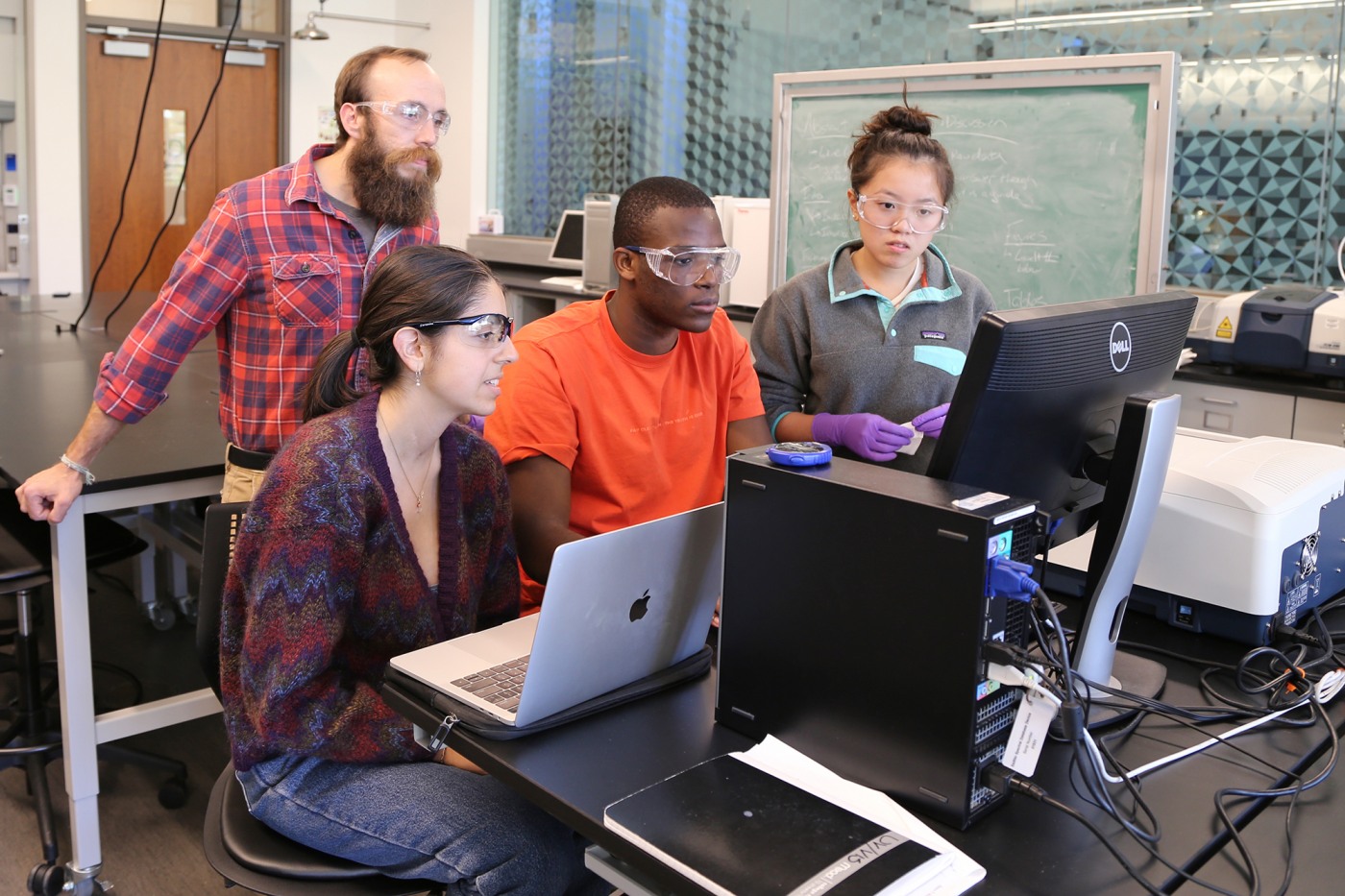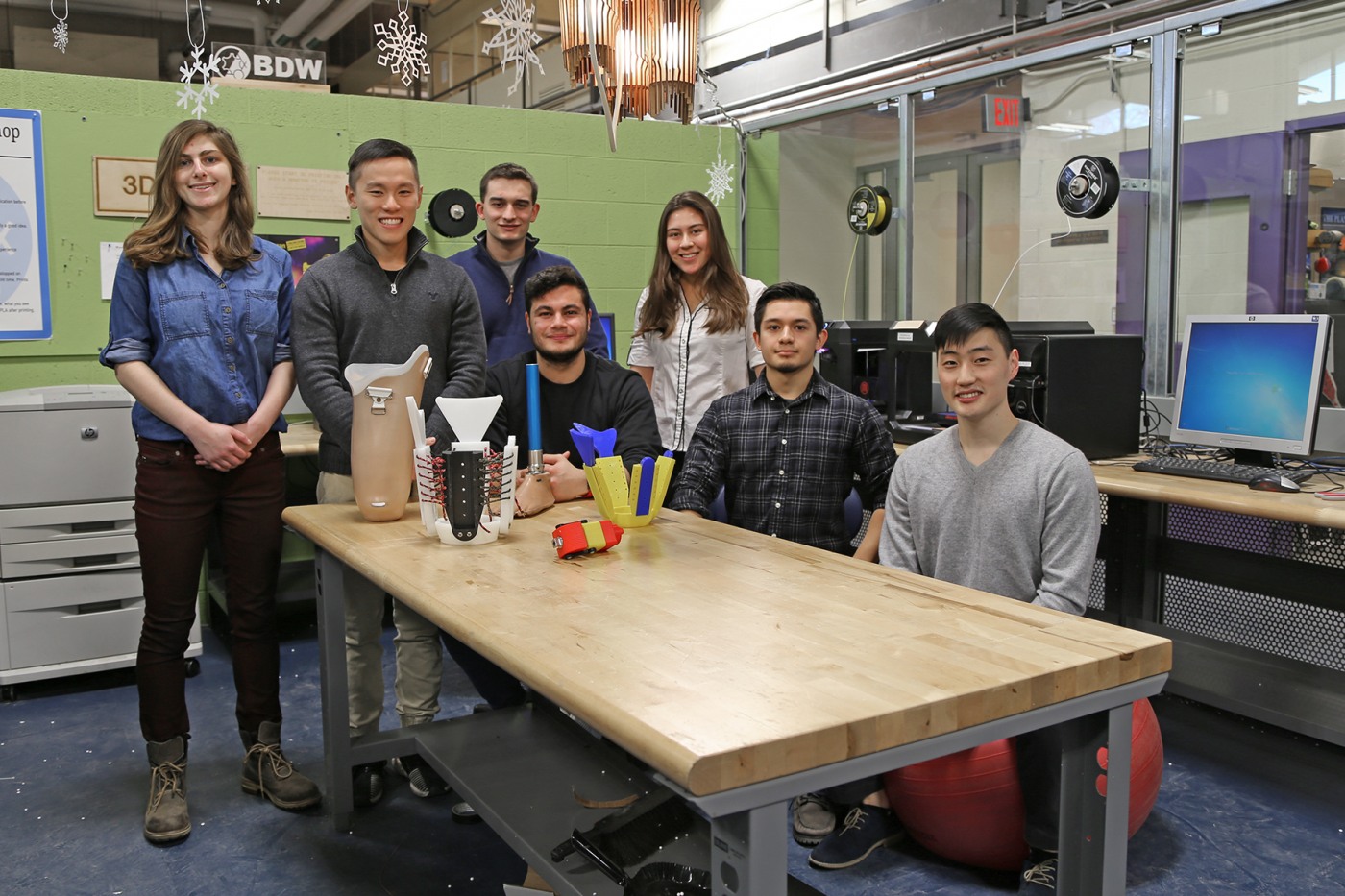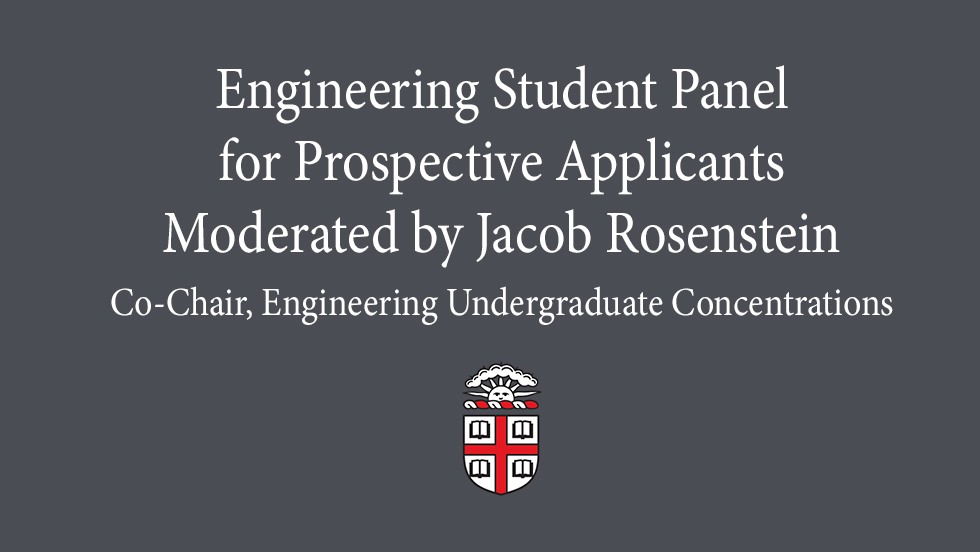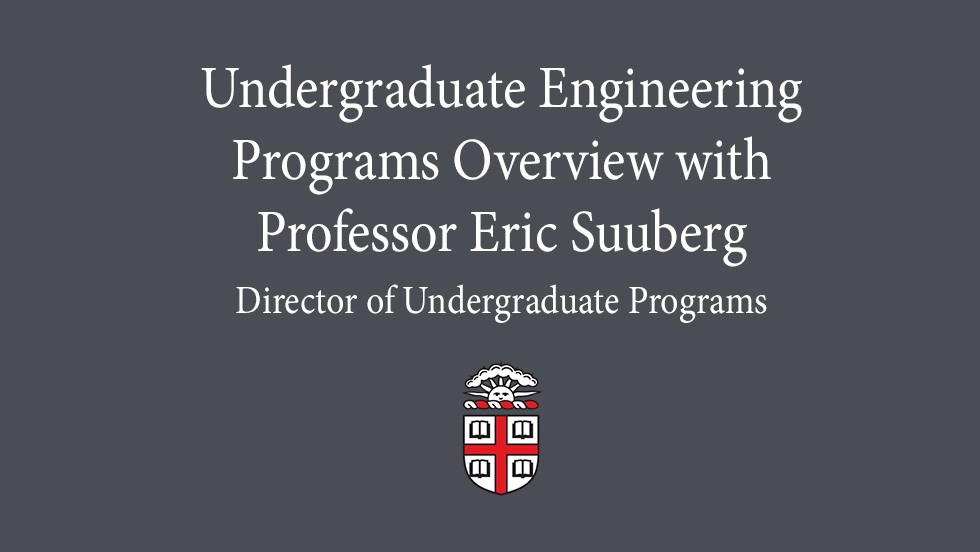Studying Engineering

Students studying engineering today will face unprecedented challenges and opportunities as new technologies replace the old, the global population expands, resources diminish, and demographics change. Many of these will be technical, and will require the traditional foundation in science, mathematics and engineering design. But tomorrow's engineers will need more than just technical skills. They will need to understand economics, politics, and the environment; they will face difficult ethical decisions; they will need to communicate, educate and innovate. The Engineering programs offered by the School of Engineering, in combination with Brown's renowned open curriculum in the liberal arts, provide an ideal setting to nurture the aspirations and talents of future leaders in engineering.
Engineering at Brown
The School offers a large number of degree programs to choose from, which range from rigorous Sc.B. degrees intended to prepare graduates for professional practice or graduate school, to more flexible A.B. degrees, which allow study of engineering to be combined with other interests.
All these programs share a common structure. During their first two years, all students take a similar set of 'core' courses, which cover many engineering disciplines, along with mathematics, computer science, chemistry, and biology. This broad foundation is intended to prepare graduates to work on inter-disciplinary teams after graduation. At the end of their fourth semester, students select one of the School's many degree options, and take a set of advanced courses in their area of specialization.
Programs are designed to provide as much flexibility as possible consistent with providing the rigorous preparation required for professional practice. Students can tailor their programs to prepare them for a Ph.D. or Sc.M. program in engineering; for professional practice, or for non-technical careers, depending on their interests.
Design and Research
Students take advantage of many opportunities to participate in engineering design and research. Team design projects are included in many engineering courses, starting in the freshman year, and culminating with a major design experience in the senior year. Students collaborate with faculty in research through paid summer internships, and through independent study courses.
Students also develop their design and leadership skills through a range of extra-curricular activities, from student chapters of professional societies, the FSAE formula race car design team, to individual projects completed in the Brown Design Workshop.
After Brown
Students enter the engineering program at Brown with unique aspirations, and pursue a wide range of careers after graduation. Approximately 30% of graduates go on to an Sc.M. or Ph.D. program in engineering, 30% enter professional practice as engineers, 10% pursue other advanced degrees such as an MD, JD or MBA, and 30% pursue other opportunities, which include finance, medicine, law, consulting, among many others.
Why Choose Brown?
- Brown and the School of Engineering attract exceptional students with diverse backgrounds and interests. Collaboration and teamwork are a hall-mark of the engineering experience at Brown. Being a part of this community will be an rewarding and challenging experience.
- Brown faculty are leaders in their field.
- You will have opportunities to explore areas of potential interest both within and outside engineering before needing to declare a specialization.
- The core program in engineering will prepare you to work across disciplinary boundaries.
- Your specialized courses will prepare you with a deep understanding of the theoretical and mathematical foundations of your discipline, as well as the experience necessary to put theory into practice.
- You will have opportunities to participate in research and design projects through internships, working in labs, and independent study courses.
- You will study engineering in a broader context through Brown's curriculum in the liberal arts.


